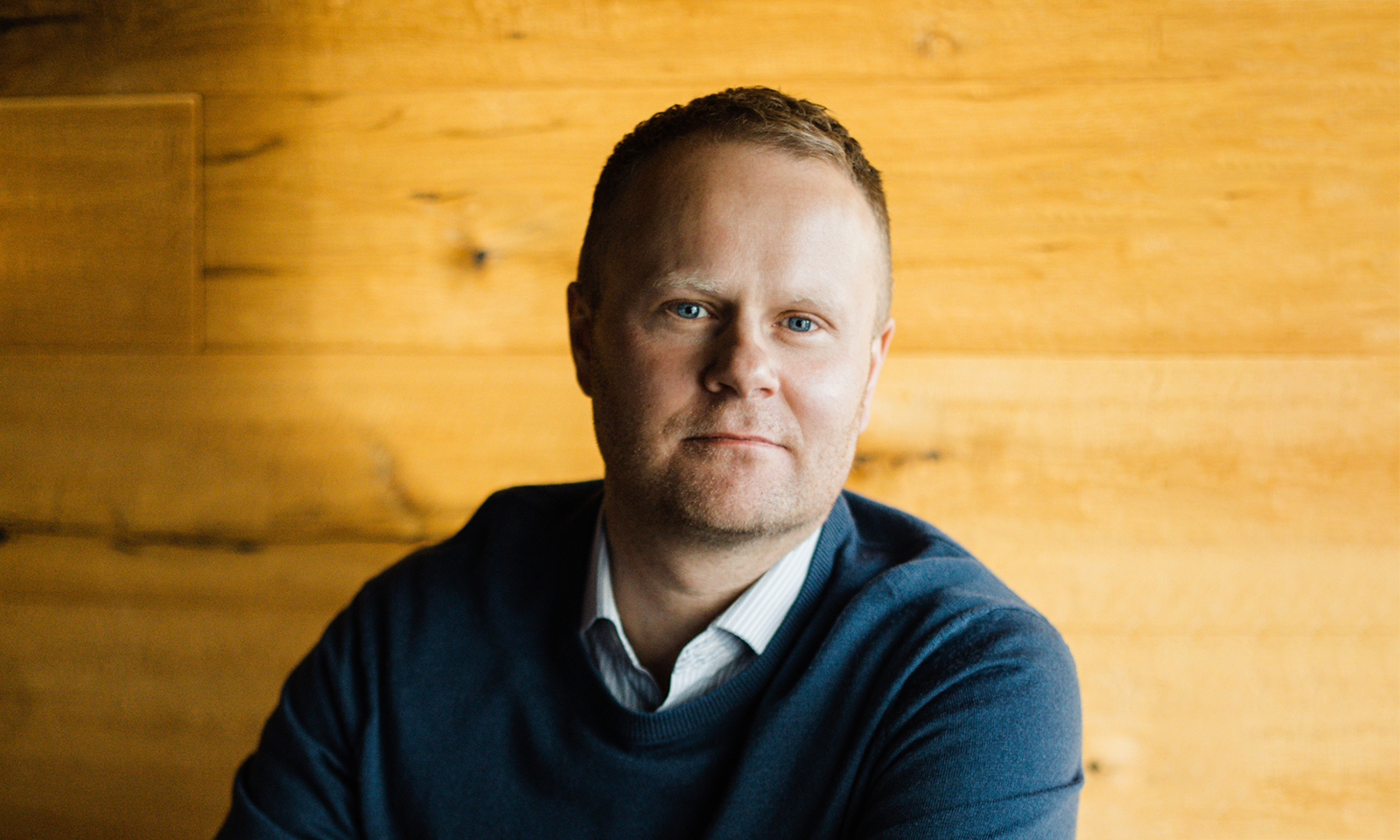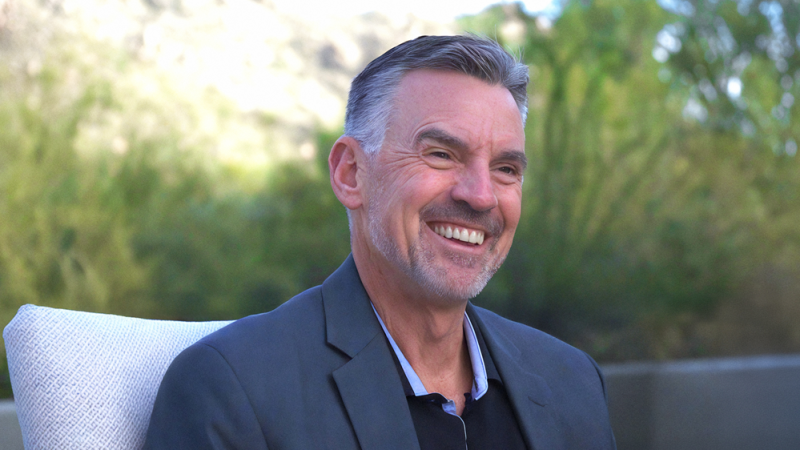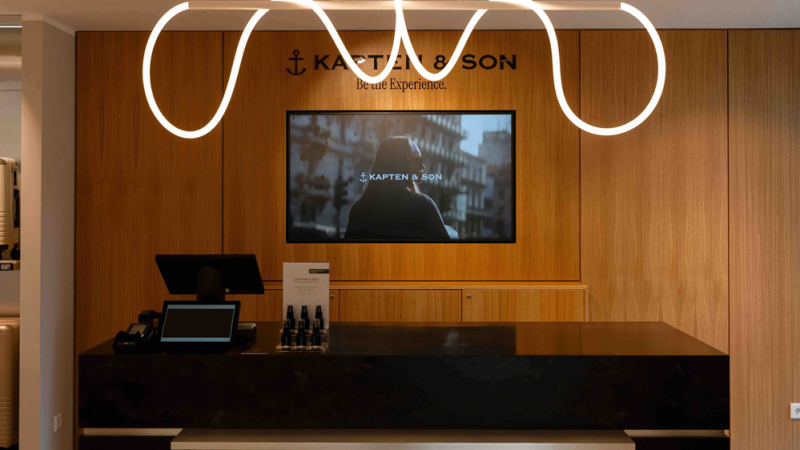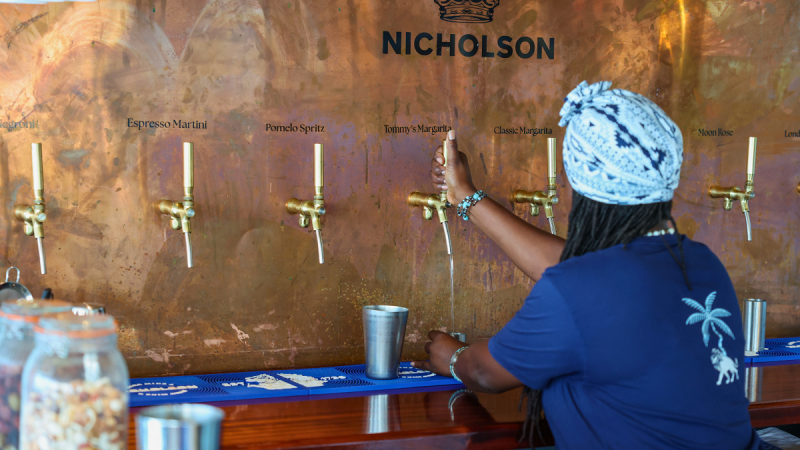Te & Kaffi is a family-owned business established in 1984. Next year it will celebrate its 40th anniversary. For half of those 40 years, the company’s core business has been running speciality tea and coffee shops alongside other speciality products such as food items and coffee paraphernalia, while also selling to and servicing the restaurant sector. The company was founded by a chef, and so has always enjoyed strong connections with the restaurant business, and Te & Kaffi became a recognised brand selling coffee and servicing espresso machines.
However, in 2004 the company’s owners decided it was time to expand its offering. While the company had grown and been successful, it still did not enjoy mainstream recognition.
“We were a speciality brand. Just before Christmas people would buy really nice coffee from us, but just to have on special occasions,” says Guðmundur Halldórsson, General Manager of Te & Kaffi.
To reach a broader audience, Te & Kaffi rebranded, introducing a new logo, and investing in new packaging machines.
“We installed big roasters to produce more and have that coffee delivered directly to the market to keep it fresh for longer,” Halldórsson says. “Since 2004 the core business has been selling the quality coffee we produce to supermarkets as well as the restaurant business.”
But while the business has changed, its core, family-owned values remain in place, even now, selling its products on quality while also working to become more sustainable.
“I would say over the last couple of years we have been moving more into sustainability. Our packaging material and coffee is all compostable which is a unique selling point, and we have one of the most environmentally friendly roasteries in Europe,” Halldórsson says. “We are not using propane gas but methane, which is locally produced. It is completely environmentally friendly.”
These are steps along a long journey for the company.
“We had a consultant company map out our carbon emissions to see where they were highest, and went from there to our action

points,” Halldórsson explains. “We have dealt with those things for the last three years making changes in our business.”
As well as environmentally friendly burners and packaging, this has included offsetting indirect carbon emissions by buying into anti-deforestation programmes in Brazil.
“We have actually seen our carbon emissions, mapped from 2017 to 2022, and got the results last week, calculated into tonnes,” says Halldórsson. “In 2017 it was 1,222 tons and we’re now down to 435 tons.”
While Te & Kaffi has been working on making its business model more sustainable, it has also been moving into new markets.
“We have been running our coffee shops for 13 years” Halldórsson tells us. “We have eight coffee shops, and that side of the business is important for our branding and how we are situated in the market.”
Something Brewing
Of course, changing a company’s entire business model does not come quickly, or easily. Entering the coffee shop sector, in particular, was an entirely different ball game.
“We have some experience because we used to run these speciality stores, so we were always in that side of the business, but going from a speciality store to a coffee shop is a completely different thing,” Halldórsson tells us. “You need more manual labour, you need more machinery, you need to start focusing on food costs and you have to have fresh products brought in every day that you need to take care of.”
In setting up Te & Kaffi-branded coffee shops, the company faced higher costs and overheads, while staffing proved a challenge as turnover was immediately an issue.
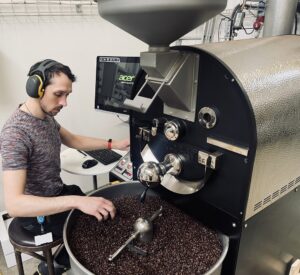
“Those who apply are young people at a crossroads in their lives who don’t know what to do next,” Halldórsson explains. “They come in for short periods of time, keeping knowledge and quality up to standard is an everyday challenge.”
To meet these challenges, Te & Kaffi had to adapt and learn fast.
“We started running these chains of coffee shops around 2010. It was a constant learning curve for a few years,” Halldórsson says.
The company not only had to teach itself the ropes in how to run the staffing and costs its coffee shops encountered, but also had to learn how many coffee shops it was sustainable to run.
“At our peak, we were running 15 coffee shops, and a lot of people were working behind the scenes making it all work, but it was a challenge,” Halldórsson recalls. “There were times when we were a bit top-heavy, with so many people outside on the floor, taking care of the coffee shops. We needed to scale down a little bit. So, we had 15 shops in 2018 and now there are eight.”
The business model had to adapt to reality, and even now Halldórsson is working to make these shops a more profitable concern.
A Recognised Name
However, while the goal is to make that side of the business profitable on its own terms, the coffee shops are also working for the company as a whole.
“We still believe the coffee shops were an important part of achieving recognition. In those years from 2014 to 2018 we saw quite a difference in how people saw the company and the brand,” Halldórsson reflects. “The coffee shops are in many ways a part of marketing strategy. We want to keep using it as a marketing tool, but we also want it to be profitable in its own right.”
That is something Te & Kaffi is working to do better every day, and it is constantly nearing the point where it will find the sweet spot for the business.
“We have outsourced the food items, sourced locally from people more experienced than us who do those things better, and we are doing that in more and more areas,” Halldórsson explains “It allows us to focus on the things that nobody else is better at than us.”
The business is now in a place where it has made huge investments over the last five years, expanding its roastery from roasting 60 kilos of coffee at a time to 180 kilos. The firm has also installed a new robot on its packaging line.
“We have these coffee shops and for the time being, at least for the next two or three years, we want to see growth from within,” Halldórsson says. “We want to make the investments from the last few years count, for product development and taking care of costs.”
